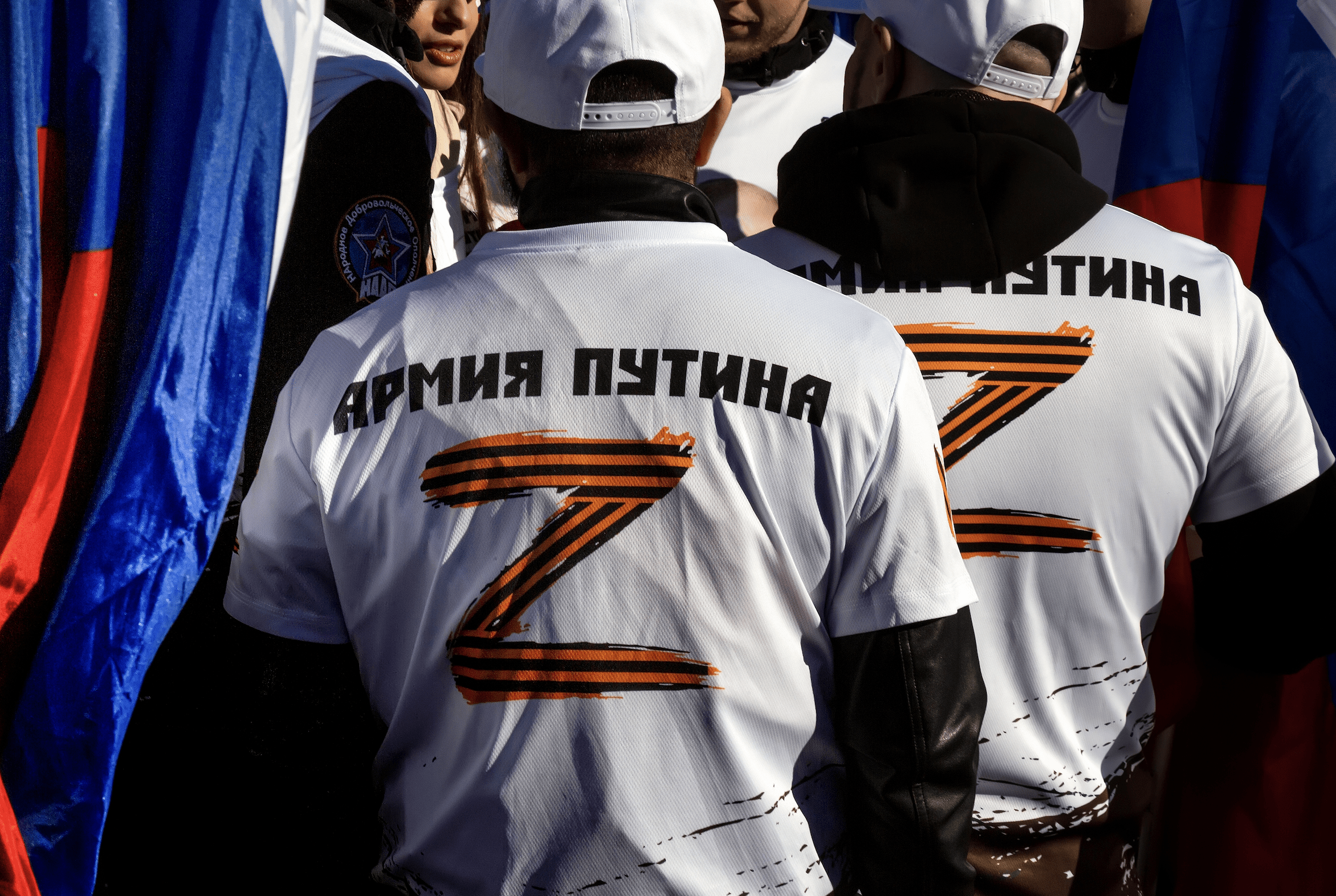
Days after several federal states signaled that criminal charges would be pursued against those who express public approval of Russia’s war in Ukraine, the federal government has now announced that it too will be following the same anti-free speech policy.
The announcement, made by the Federal Ministry of the Interior on Monday, comes a little over a month after the letter Z—claimed to stand for Za Pobedu (To Victory)—began appearing on thousands of Russian tanks, armored personnel carriers, and other military hardware that poured into Ukraine following Putin’s initiation of the so-called ‘special operation,’ the German news outlet n-tv reports.
Since then, the stylized letter has become a ubiquitous symbol of public support for Putin’s military incursion into Ukraine, showing up increasingly on social media and in demonstrations in Western and Eastern Europe.
Belgrade, Serbia, is Europe's only capital to have a pro-Russian rally. pic.twitter.com/zWu1MJjgCS
— Daily Turkic (@DailyTurkic) March 4, 2022
On Monday, after noting that security services were aware that the symbol had been popping up at pro-Kremlin rallies across Germany, the Federal Ministry of the Interior, headed by Nancy Faeser (SPD), announced that any public displays of support for the Russian war, including the use of the Z symbol, could result in criminal prosecution.
Russians organised a pro-Russian demonstration in Germany (Cologne – Bonn). They were waving #Russian and Soviet flags and laid flowers on a Soviet memorial.
— Natalia Riddick (@NataliaRiddick) March 27, 2022
Stop saying it's only Putin's war or that Russians are pressured to support it. This is just Russians#UkraineWar pic.twitter.com/VUtDWCeNFB
“The Russian war of aggression against Ukraine is a criminal offense. Anyone who publicly approves of this war of aggression may be liable for prosecution. This also applies to the display of the Z symbol. Federal security agencies are keeping an eye on the use of this symbol,” the ministry wrote on social media.
Der russische Angriffskrieg gegen die #Ukraine ist eine Straftat. Wer diesen Angriffskrieg öffentlich billigt, kann sich strafbar machen. Das gilt auch für das Zeigen des „#Z“-Symbols. Die Sicherheitsbehörden des Bundes haben die Verwendung des Symbols im Blick.
— Bundesministerium des Innern und für Heimat (@BMI_Bund) March 28, 2022
The declaration comes after ministries in a handful of federal states—including Lower Saxony, Hanover, North-Rhine Westphalia, Thuringia, and Bavaria—announced similar plans to initiate prosecutorial action against those who publicly support the Russian war.
Lower Saxony and Bavaria have taken a particularly hard line on the issue, threatening transgressors with up to three-year prison sentences. And while a three-year prison term for displaying the letter Z during a demonstration may seem excessive, the policy is very much in line with Germany’s long-held anti-free speech tradition.
In fact, earlier this month, the German Federal Criminal Police Office (BKA)—in a massive display of force— carried out raids against more than 100 individuals who are suspected of spreading so-called ‘hate speech’ during the run-up to last year’s parliamentary elections. The nationwide operation, referred to as a “day of action against hate speech on the Net,” took place across thirteen federal states, as The European Conservative previously reported.
Amid the Russian onslaught, Germany isn’t the only European country that presently finds itself trampling on freedom of expression. Similar draconian restrictions on free speech—also backed up by threats of imprisonment—have been enacted elsewhere as well, namely in former Warsaw Pact countries, as a result of Russia’s invasion of Ukraine.
In his piece ‘In Defense of Free Speech,’ The European Conservative’s Sven R. Larson cites similar anti-freedom of expression measures presently being pursued by the governments in Slovakia, Latvia, and the Czech Republic.
